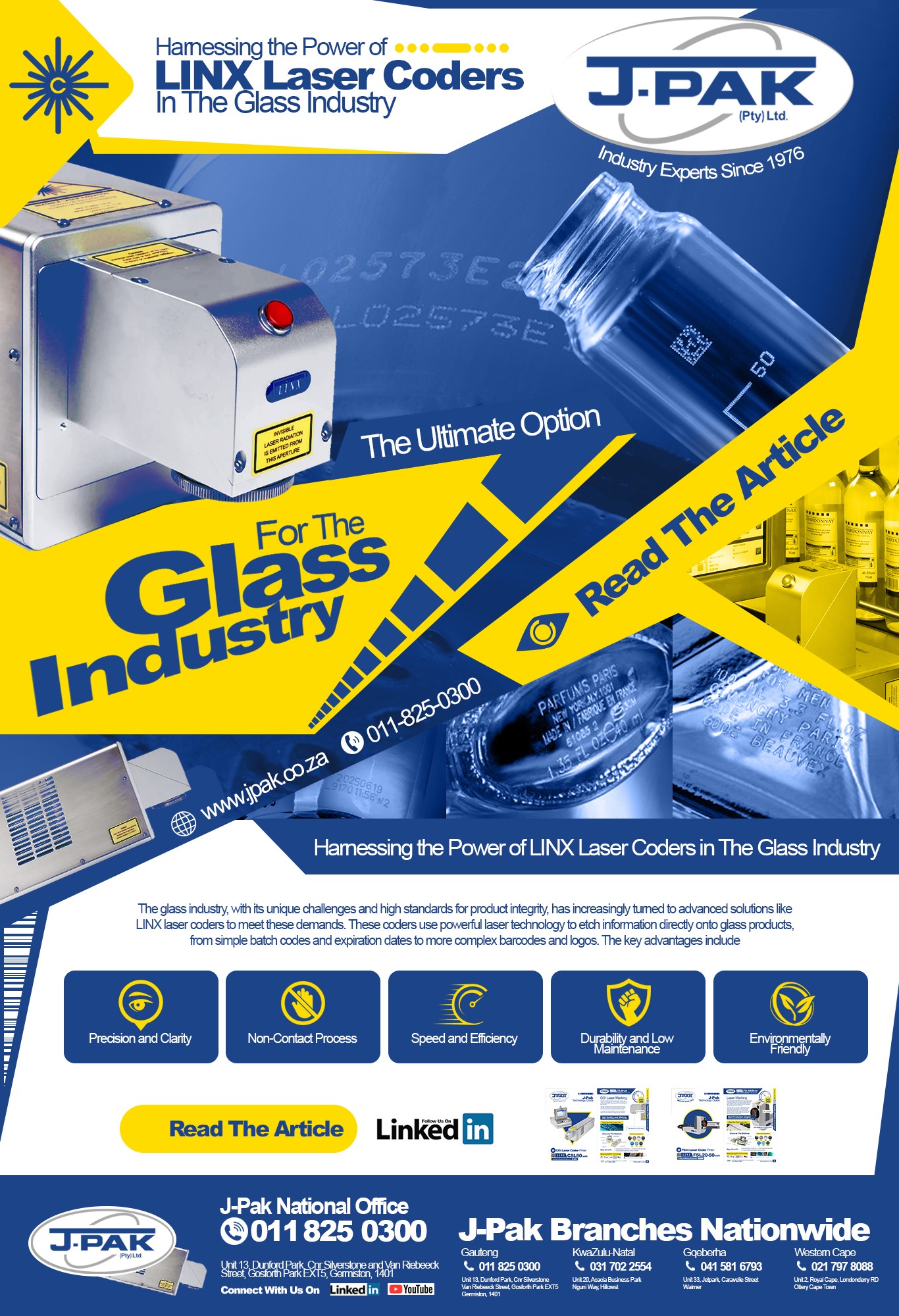
Harnessing the Power of LINX Laser Coders in The Glass Industry
Introduction
In the world of industrial manufacturing, precise and reliable marking systems are crucial for tracking and quality control. The glass industry, with its unique challenges and high standards for product integrity, has increasingly turned to advanced solutions like LINX laser coders to meet these demands. LINX laser coders have become integral in enhancing production efficiency, reducing waste, and ensuring compliance with international safety standards.
Why LINX Laser Coders?
LINX laser coders are renowned for their ability to deliver high-quality, permanent marking solutions on glass substrates. These coders use powerful laser technology to etch information directly onto glass products, from simple batch codes and expiration dates to more complex barcodes and logos. The key advantages include:
Precision and Clarity: LINX lasers produce sharp, clear marks that are easily readable and resistant to fading over time—even under harsh conditions. This is essential for traceability and maintaining the integrity of information.
Non-Contact Process: Unlike traditional coding methods, laser coders operate without touching the glass surface. This non-contact approach significantly reduces the risk of product damage or contamination, making it ideal for the fragile nature of glass.
Speed and Efficiency: LINX laser coders are designed for high-speed production lines. They can keep up with rapid throughput rates without compromising the quality of the mark, thereby enhancing overall production efficiency.
Durability and Low Maintenance: These coders are built to last and require minimal maintenance, thanks to their lack of moving parts and consumables. This results in lower operational costs and less downtime.
Environmentally Friendly: Laser coding is a cleaner technology that does not require inks, solvents, or other consumables. This not only reduces the carbon footprint but also eliminates the need for disposal of hazardous materials.
Applications in the Glass Industry: LINX laser coders are versatile and can be adapted to a variety of applications within the glass industry:
Beverage Bottles: For sodas, spirits, and other beverages, laser coders can mark production dates, batch numbers, and brand logos directly onto glass bottles.
Pharmaceuticals: In the pharmaceutical sector, where traceability and compliance are critical, laser coders provide high-quality, tamper-proof markings on glass vials and ampoules.
Cosmetic Containers: The aesthetic appeal of cosmetic packaging can be enhanced with the sophisticated and precise markings possible with LINX lasers.
Automotive Glass: Safety and regulatory information on car windshields and other automotive glass components are effectively applied using laser technology.
Conclusion
The adoption of LINX laser coders in the glass industry represents a significant technological leap forward. With their ability to provide durable, precise, and efficient markings, these coders are not just enhancing operational efficiency but are also paving the way for greater innovation in product design and branding. As technology evolves, the potential applications of laser coding in the glass industry are set to expand even further, promising an exciting future for manufacturers and consumers alike.

